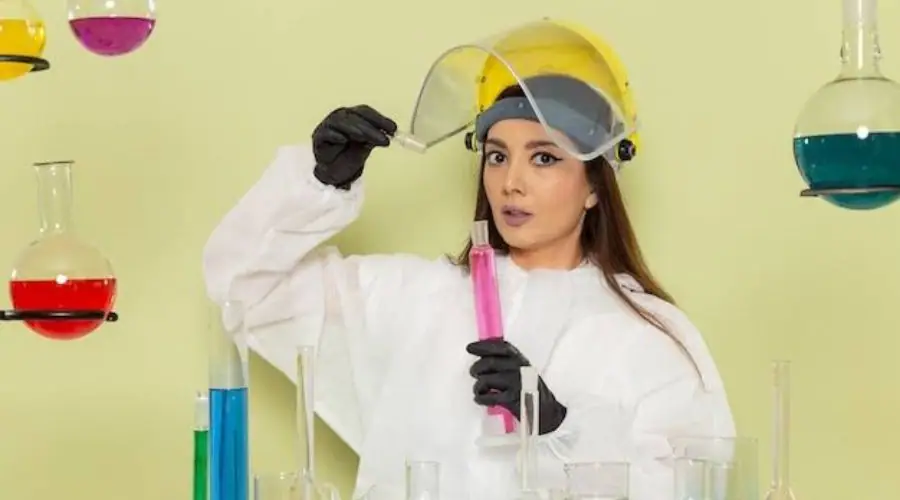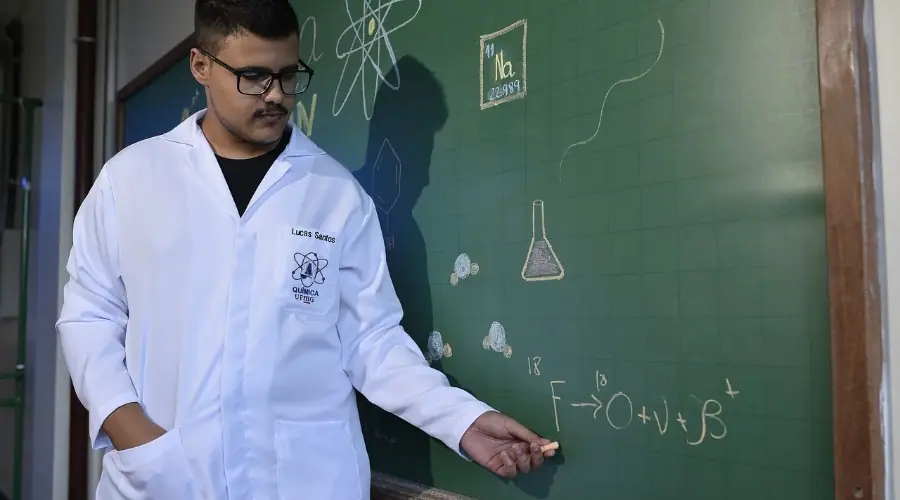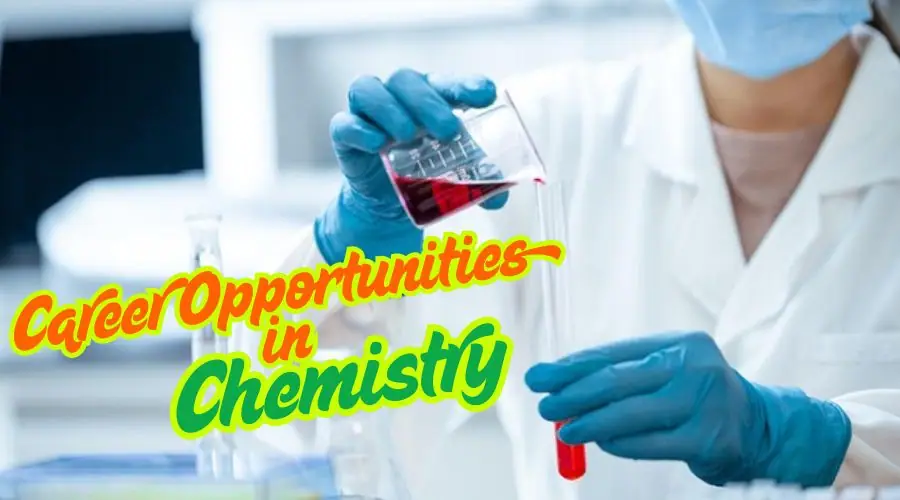Career Opportunities in Chemistry
What is Chemistry
Chemistry is the study of matter, specifically its properties, composition, structure and transformations and inter-molecular reactions. Over one-half of all chemists work in research and development. In basic research, chemists investigate the properties and composition of matter and the laws that govern the combination of elements. Basic research often has practical uses. Chemists search for and put into practical use new knowledge about substances. They develop new compounds, such as rocket fuel, improve foods and create clothing that is chemically treated against flammability, soil and wrinkles.
Basic Roles of Chemist:
Nearly one-fifth of all chemists work in production and inspection. In production, chemists prepare instructions (batch sheets) for plant workers that specify the kind and amount of ingredients to use and the exact mixing time for each stage in the process. At each step, samples are tested for quality control to meet industry and government standards. Records and reports show results of tests.
Others work as marketing or sales representatives to obtain technical knowledge of products sold. A number of chemists teach in colleges and universities. Some chemists are consultants to provide industry and to government agencies.
Chemists often specialize in one of the subfields of chemistry. Analytical chemists determine the structure, composition and nature of substances and develop new techniques.
Main Branches of Chemistry:
Organic Chemistry:
Organic chemists at one time studied the chemistry of only living things, but this area has been broadened to include all carbon compounds. When combined with other elements, carbon forms a vast number of substances. Many modern commercial products, including plastics and other synthetics, have resulted from the work of organic chemists.
Inorganic Chemistry:
Inorganic chemists study of the composition, properties and behaviors of inorganic compounds other than carbon. Though some of the compounds studied in inorganic chemistry contain carbon, but lack the carbon-hydrogen bond. They may, for example, develop materials to use in solid state electronic components.
Physical Chemistry:
Physical chemists study energy transformations or the atomic movements or the conversion process of liquid into gas to find new and better energy sources. Increasingly, however, chemists consider themselves members of new specialties that include two of the preceding fields or more.
Biochemistry:
Biochemists, however often consider as either chemists or life scientists, are found to study or analyze interaction between biological processes of living things on a chemical level. Biochemists usually work in modern, well-equipped laboratories and normally deal with biochemical experiments and research and put into practical use new knowledge about substances.
Job Outlook in Chemistry:
Approximately three-fourths of total employment is expected to be in private industry, primarily in the development of new products. In addition, industrial companies and government agencies will need chemists to help solve problems related to energy shortages, pollution control and health care. Some also will work in Federal, State, and local crime laboratories. Chemists usually work in modern, well-equipped and well-lighted laboratories, offices, classrooms. Some hazard is involved in handling potentially explosive or highly caustic chemicals. However, when safety regulations are followed, health hazards are negligible.

Career Opportunities in Chemistry or Chemists:
Chemistry Jobs in Industry:
About three-fifths of all chemists work in private industry, almost one-half of them in the chemical manufacturing industry. Most others work for companies manufacturing food, scientific instruments, petroleum and electrical equipment.
Industrial companies and government agencies will need chemists to help solve problems related to energy shortages, pollution control and health care. Some also work in Federal, State and local crime laboratories.
Chemists are employed in all parts of the country, but they are concentrated in large industrial areas. Nearly one-fifth of all chemists were located in four metropolitan areas – New York, Chicago, Philadelphia, and Newark. About half worked in six States – New York, New Jersey, California, Pennsylvania, Ohio, Illinois.
Jobs in Research Chemist:
A bachelor’s degree with a major in chemistry or a related discipline is sufficient for many beginning jobs as a chemist. However, graduate training is required for many research and college teaching positions. Beginning chemists should have a broad background in chemistry with good laboratory skills. In addition to required courses in analytical, inorganic, organic and physical chemistry, undergraduates usually study mathematics and physics.
Students planning careers as chemists should enjoy studying science and mathematics, and should like working with their hands building scientific apparatus and performing experiments. Other desirable assets include an inquisitive mind, and imagination.
Graduates with the bachelor’s degree generally begin their careers in government or industry by analyzing or testing products, working in technical sales or service, or assisting senior chemists in research and development laboratories. Many employers have special training and orientation programs which are concerned with the special knowledge needed for the employer’s type of work. Candidates for an advanced degree often teach or do research in colleges and universities while working towards advanced degrees.
Faculty Jobs in Chemistry:
Some graduates will find openings in high school teachings after completing professional education courses and other requirements for State teaching certificates. They usually are then regarded as teachers rather than chemists.

Graduates students with additional training in education may work as chemistry teachers in public high school. Beginning chemists with the master’s degree in addition with PhD degree in the field of chemistry can usually go into applied research in government or private universities. They also may qualify for teaching positions in colleges and universities.
Jobs in Government Sectors:
An equal number worked for State and local governments, primarily in health and agriculture and for Federal agencies, chiefly the Department of Defense; Health, Education and Welfare; Agriculture; and Interior. Smaller numbers worked for non-profit research organizations.
The national labs operated under U.S government carry on different research on various topics to supply inventories. These government labs require huge number of B. Sc, M. Sc and PhD chemists to carry out the research work.
Some renowned government agencies like EPA, FBI, FDA, ATF etc carry out research and experimental works with the help of chemists obtaining advanced degrees in analytical, inorganic, organic and physical chemistry.
Production and Inspection Jobs in Chemistry:
Over one-half of all chemists work in research and development in the scientific field. In basic scientific research, chemists investigate the properties and composition of matter and laws that govern the combination of elements. In research and development, new products are created or improved.
Nearly one-fifth of all chemists work in production and inspection. In production, chemists prepare instructions for plant workers that specify the kind and amount of ingredients to use and the exact mixing time for each stage in the process. At each stage, samples are tested for quality control to meet industry and government standards.
Sales and Marketing Jobs:
Others work as marketing or sales representatives to obtain technical knowledge of products sold. Graduates in science field with chemistry and technical background can begin their careers in technical sales or service. Different government agencies and private manufacturers need technical sales executives to sell their products as well as to analyze the market demand. Interpersonal skills are highly valued in this regard and the individuals can work independently according to his schedule.
Top 10 Colleges for Chemistry in America:
- California Institute of Technology
- Harvard University
- Massachusetts Institute of Technology
- Yale University
- Rice University
- Princeton University
- Emory University
- Duke University
- Carnegie Mellon University
- Stanford University
You May Like To Read More:
- Top 6 Artificial Intelligence Jobs
- How to Get UK Student Visa
- How to Write Biodata for Job
- Cardiff University Scholarships for International Students
- Best Courses to Study in United Kingdom
Career Opportunities
- Career in Aerospace Engineering
- Career in Agriculture Engineering
- How to Become an Air Hostess
- Best Courses to Study in Australia
- How to Make Career in Aviation Industry
- Study in Australia for Indian Students
- Career Opportunities in Hotel Management
- Career Opportunities in Food Science & Technology
English Grammar
